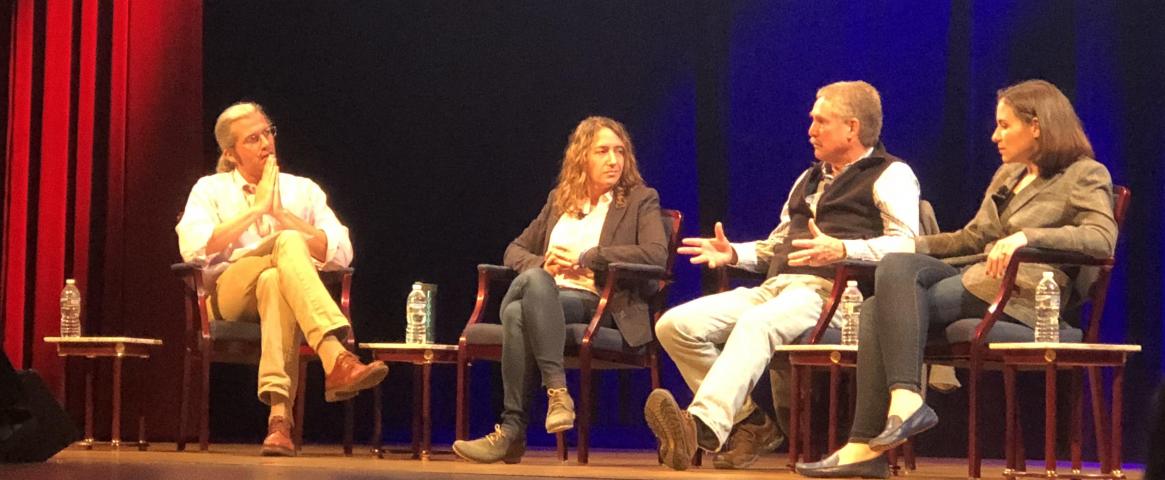By Jake Buehler
Writing about the world's most critical and looming problems — like climate change, war, the specter of disease, and biodiversity collapse — can be a prickly, foreboding undertaking, but it's something that science writers increasingly must tackle. Fortunately, there are strategies for addressing these problems that promote compelling storytelling without retreading well-worn ground, said panelists in "Apocalypse how? The challenge of writing freshly about huge intractable problems."
A major difficulty in writing about these issues is narrowing down a focal point out of what could be many thousands of possible stories. David Quammen — author and contributing writer at National Geographic — imagines topics as largely consisting of two vectors: There's the interesting, but not important, and the important, but not interesting. In identifying a story, Quammen looks for where these two streams meet.
Recognizing your angle isn't the end of potential difficulties, because these problems can be so complex and interwoven with other issues, it can be hard to tell how deep your research should go. The New Yorker's Kathryn Schulz recounted her own tendency to "over-research," and said that alternating between writing and research (rather than doing all the research up front) can be an effective strategy to keep from getting stuck. Quammen offered that the research isn't over until the writing is over, and that there may always be a need for additional information in the writing process.
In executing the research phase, there may be a tug of war between seeking specialized sources, or generalists that can possibly provide perspectives on the issue more broadly. For Virginia Hughes — science and health editor at BuzzFeed — generalists are more useful to talk to early on in writing about large, intractable problems, followed up with specialists later on once the piece has more direction. But Schulz noted that most specialists are also great generalist sources, as they inevitably possess a wealth of background knowledge in their field that envelops their area of expertise.
A particular challenge is making a story captivating in spite of the dire and gloomy subject matter. Hughes noted that it's helpful to convert an atmosphere of doom into one of mystery or suspense, which is likely more digestible for most audiences. There can be bright spots incorporated into the narrative itself, too. For example, in regards to the ongoing global extinction crisis, Quammen argued that framing the loss of biodiversity alongside wonder at the beauty that has persisted is a great way to cultivate a crucial emotional attachment, and convey the alarm at what was transpired.
Writers themselves certainly aren't immune from the emotional strain that comes from writing about catastrophe, so how does one deal with such heavy subject matter without becoming disheartened? Schulz urged everyone to remember that an attraction to writing about these topics is seated in a concern over the loss of joy in our lives and in others, so we should seek out and hold onto joy. Quammen agreed, adding that we must remember to "laugh through the tears."

